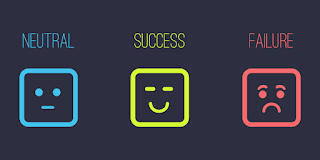“Free products and services are always of poorer quality compared to expensive ones”-is a common saying. The word “cheap” has come to represent pettiness, in addition to low prices. Enterprises which use cheap infrastructure and outsourcing are usually looked down upon, and not without reason.
Thus, using paid ads for digital marketing might sound like a good idea. After all, the package offered by paid ads usually includes powerful design tools. Surely expenditure leads to success here, as is the case elsewhere?
Here’s the thing: it doesn’t.
Social media’s innumerable engagement opportunities has given birth to a wholly new realm of digital marketing-SMM(social media marketing). Using paid ads on social media is one of the most common SMM techniques.
And it does seem to be an attractive proposition, at least at first sight. Facebook is the #1 platform for paid ads. Thanks to recent upgrades, it is now possible to plan highly effective campaigns there. At $0.25 per 1,000 impressions, Facebook’s ROI is 10 times higher than that of TV advertising. The figure for Twitter is also an impressive $1.1. Thus, you now know that Twitter isn’t all about following sportstars.
Yet social media is crawling with stories of paid ads not securing good enough returns. Curiously, we once came across a comment complaining about Facebook Ads right below an ad itself!!!
The complainant belonged to a large group-up to 43% of all enterprises still indulge in purely organic marketing(through Social Media Optimization or SMO)
Even after so many years of fine-tuning, paid ads on social media are still not a foolproof way of ensuring lead generation. Why is this system still not maturing?
“It’s free and will always be”-Facebook’s motto holds the key to the answer. Simply put, anyone can open an account on Facebook, or any social media platform for that matter. Posting information about company products and services, creating specific “pages” and linking to a company’s website can all be done absolutely FREE of cost.
This is of immense significance. Basically, some of the most basic digital marketing activities, such as gaining a virtual space and promoting it, cost absolutely nothing. There is thus no need to go in for paid ads for basic marketing.
Could you suggest a few more reasons for enterprises not choosing to go for paid ads? We certainly can:
- Rules imposing limitations: All text in Facebook Ads must not exceed 90 characters. This is a big burden upon creativity, especially since some of the most innovative of ad taglines go over this limit.
- Quality: If Facebook is burdened by arbitrary limitations, its rivals struggle with ad quality. Neither platform allows enough customization. Twitter ads are often lost among non-ad tweets. LinkedIn Ads struggle with visibility as well, and offer only very basic analytics options. Compared to Facebook, these two channels struggle highly with ROI; only a shocking 17% of all LinkedIn ad campaigns have ever managed to break even.
- Content is King: It might sound cliched, but content is indeed king. And a free post with great content will outperform a poorly designed paid ad campaign any day of the week. Facebook’s incorporation of a wide range of fonts, emoticons and animations, Twitter’s retweets and LinkedIn’s articles are 3 incredibly useful tools for marketers. All of these are completely free.
As we can see, the good and the great in the world of social media marketing aren’t separated by money, but rather by quality. Eclipse Technoconsulting Global (P) Ltd., a renowned digital marketing company based in Kolkata, India, follows this principle to the fullest in its SMO campaigns. We firmly believe that while paid ads are useful, organic marketing on social networking is likely to yield massive benefits. Will it succeed in making expensive campaigns extinct? Let us know at #eclipseindia or Eclipsetech12.
















0 comments:
Post a Comment